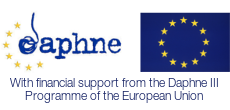
Microsite Alternatives to Custody for Young Offenders
Objectives
The main objective of the research is to study the use of alternatives in the European Union, in particular foster care, and to set up a European good practice model of “Intensive and Remand Fostering Programmes” for young offenders with the active participation of custody-experienced young people.
Following the comprehensive set of rights for children and young people established by the United Nations Convention on the Rights of the Child (UNCRC). Detention should be a measure of last resort for children in conflict with the law, and that the rehabilitative potential of remand and intensive fostering as alternatives to custodial sentencing is worthy of consideration. The research aimed to help fill the gap in the availability of viable alternatives, supporting diversion over detention.
Foster care features in article 40 UNCRC as one of the alternatives to institutional care or detention. Young offenders have exceptional needs for education, support and integration into society and community, and here foster care can play a critical role in the processes of learning and empowerment that alone can lead to a positive sense of citizenship.
Remand (while young people are awaiting trial or sentence) and Intensive Foster Care (for those found guilty of offences sufficiently serious to warrant custody) have the potential to provide young people with a caring environment where they can build a relationship and work with carers and justice staff, addressing their social and personal needs and their offending behaviour.
Remand fostering can help ensure that young people attend court when necessary, co-operate with professionals, and contribute to reducing the opportunities to offend while on remand. Intensive Fostering helps to turn around the lives of vulnerable young people with more extensive criminal histories by reducing re-offending, re-establishing positive links with families and decreasing anti-social behaviour.
With input from all the research partners, and taking account of the latest researches, the research delivered a comprehensive overview of the juvenile justice systems at national level, as well as created a good practice model on foster care as alternative to detention. This aims to be as versatile as possible in its potential usage in order to meet the needs of professionals and young people across the different youth and criminal justice systems in the very varied European states.
